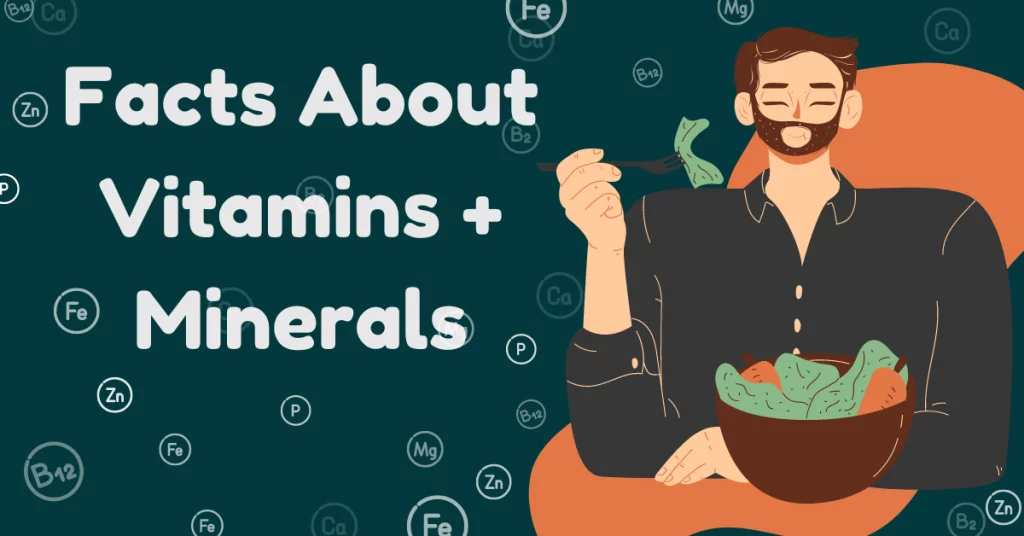Facts About Vitamins
Vitamins and minerals are collectively known as micronutrients. The human body requires micronutrients along with carbohydrates, fats, dietary fiber, and protein to sustain immunity.
Micronutrients help prevent diseases and support healthy growth and cell development. However, the human body cannot synthesize them. Therefore, you will need to intake these with the diet you consume to stay healthy.
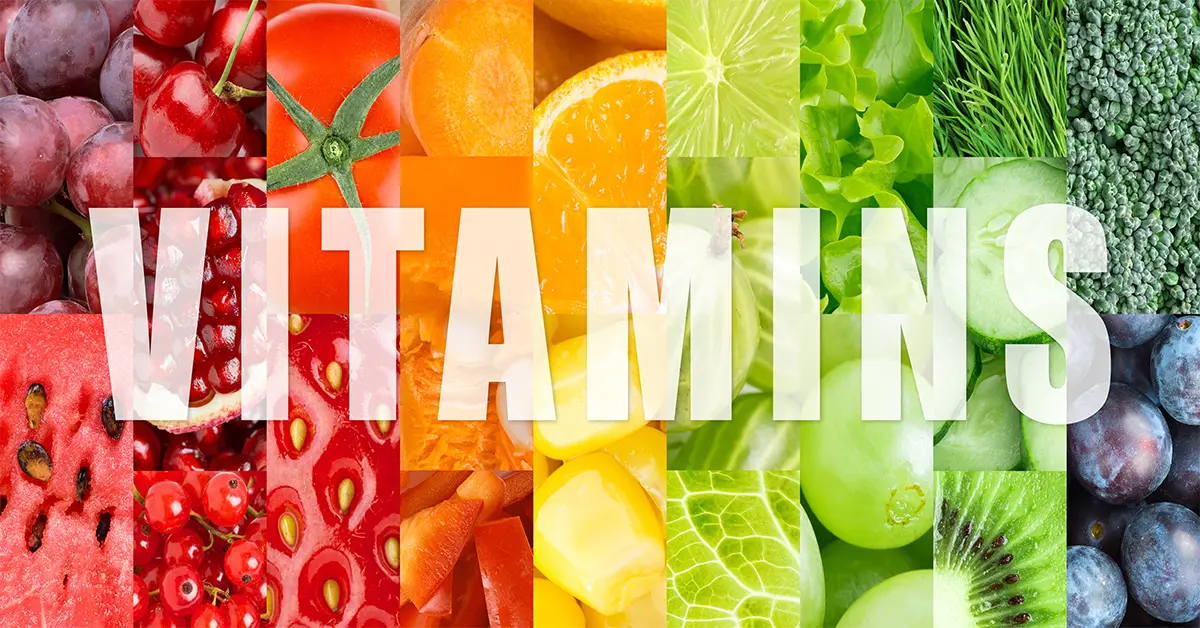
Failing to intake the required amounts can lead to deficiencies and severe disorders. So, what vitamins and minerals are classified as micronutrients? And, what is the exact function of these? We have compiled this guide to answer these questions more clearly. Keep reading till the end to learn more!
Vitamins And Minerals: An In-Depth Overview
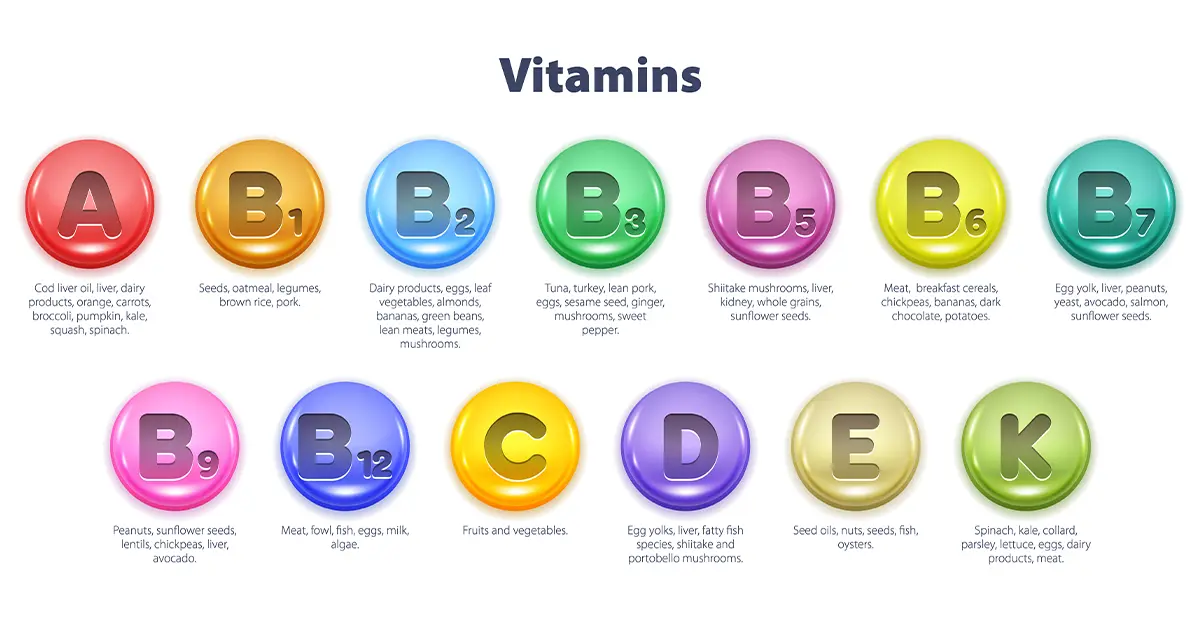
In this section, we shall look at what differentiates vitamins and minerals and how each of them plays a significant role in bodily functions and development:
Vitamins
Vitamins are required for optimal growth, development, healthy immune system, and prevention of diseases. There are two types of vitamins:
Fat-Soluble
Fat-soluble vitamins are stored in the fatty tissues of your body. Since these are easier to retain than water-soluble vitamins, toxicity and adverse effects may occur. Intaking the required amount daily and being careful not to exceed can prevent this. There are four fat-soluble that are essential for the body:
Vitamin A
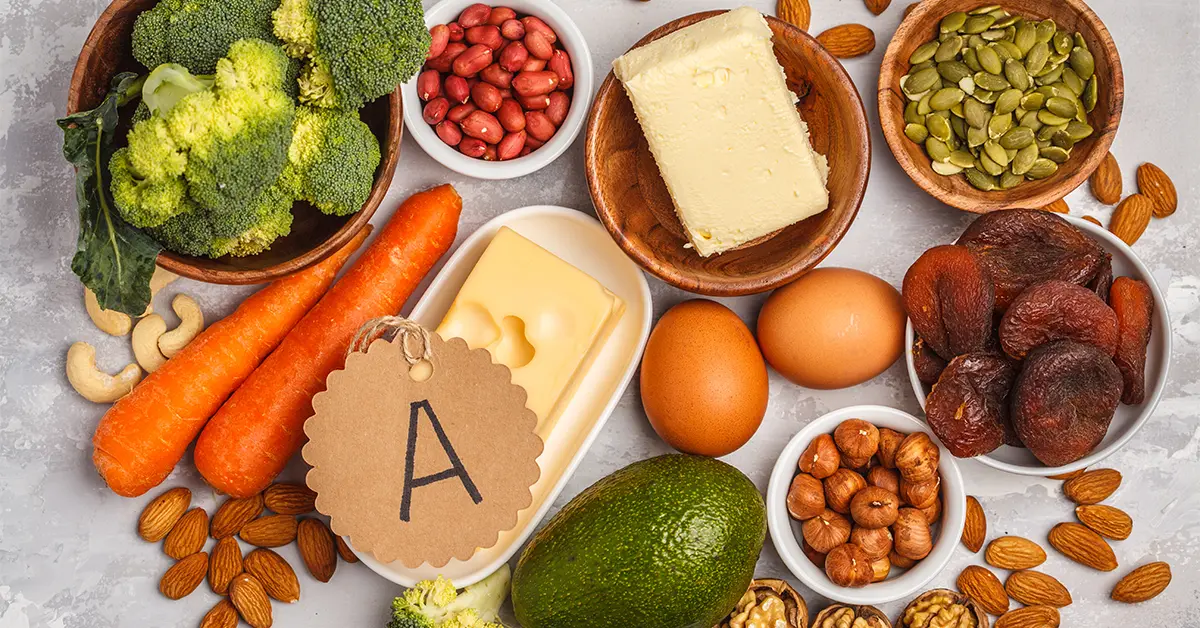
Vitamin A, also known as retinol, is necessary for beautiful skin and healthy vision. It improves night vision and acts as an antioxidant to prevent cancer. Carrots, broccoli, spinach, and sweet potatoes have large amounts of vitamin A.
Vitamin D
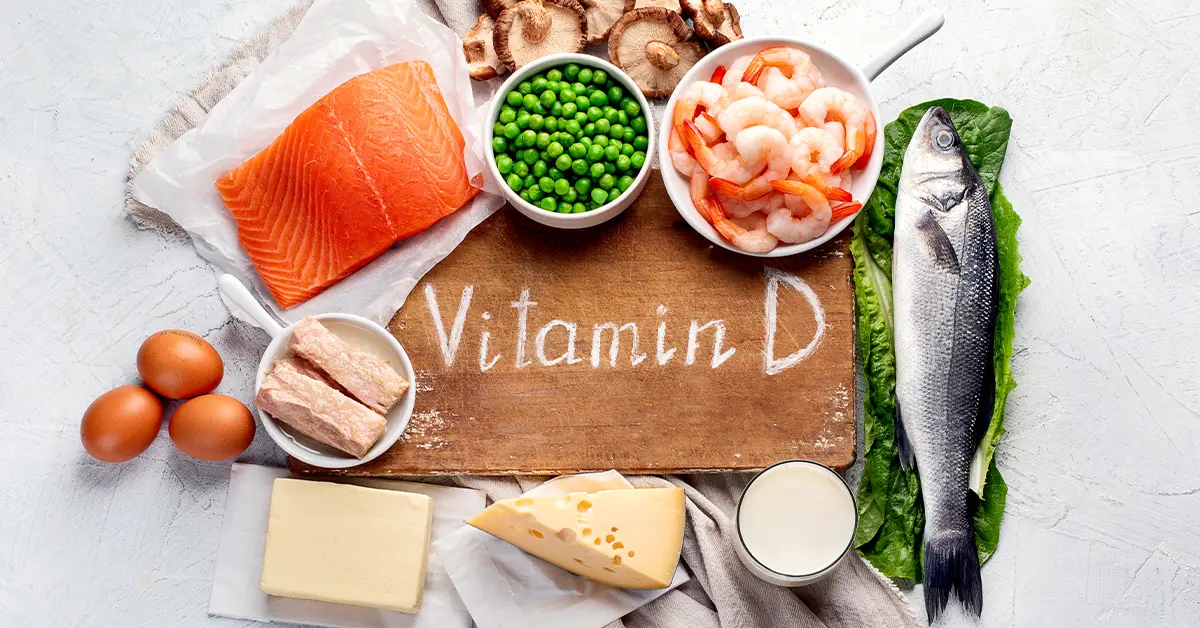
Vitamin D or Cholecalciferol is the only vitamin that can be produced from cholesterol when your skin is exposed to sunlight. This vitamin promotes the absorption of calcium required for healthy bones and teeth. Food sources with high amounts of vitamin D include milk, salmon, liver, and egg yolks.
Vitamin E
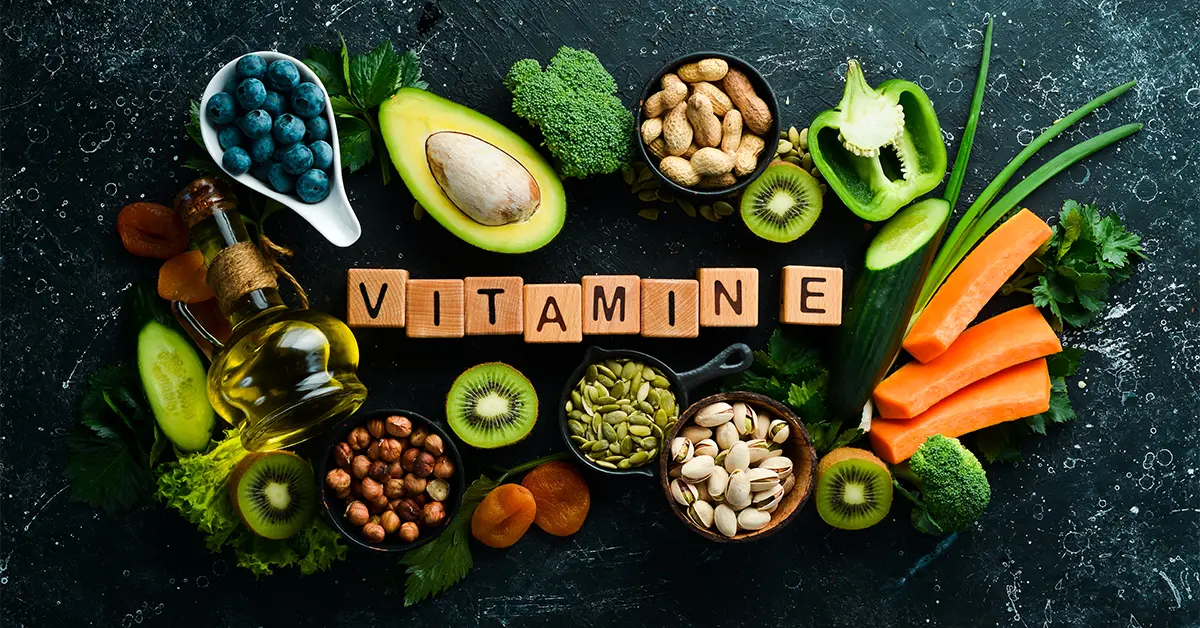
Tocopherols or vitamin E is responsible for healthy cell membranes. It also acts as an antioxidant. Some excellent food sources include almonds, avocados, nuts, and asparagus.
Vitamin K
Vitamin K is essential for blood clotting. This causes wounds to heal and prevents heavy blood loss. It is also known as Phylloquinone. Good dietary sources include green leafy vegetables, canola oil, and soybean.
Water-Soluble
Vitamins that cannot be stored by the body and are easily flushed away with water are water-soluble. Peeing can cause you to lose water-soluble vitamins not absorbed by the body cells. Therefore, these need to be taken daily to promote healthy immune function. Water-soluble vitamins include:
Vitamin C
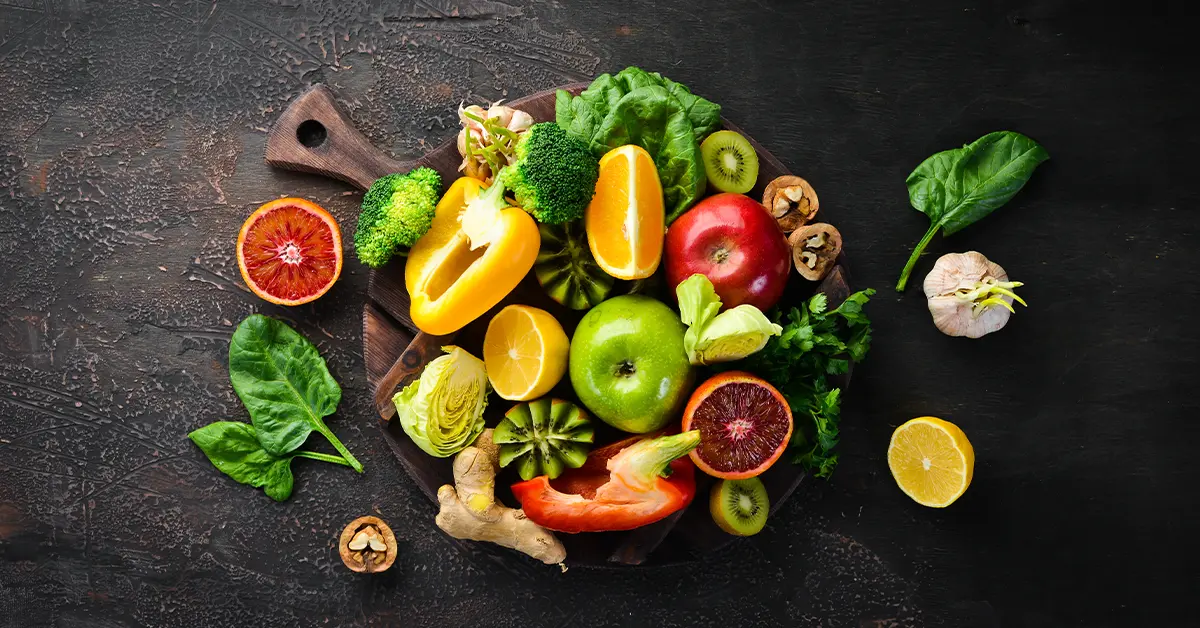
Vitamin C or ascorbic acid is required for the formation of collagen. This supports healthy skin, hair, nails, bones, teeth, and blood vessels. This vitamin also acts as an antioxidant and helps ward off infections. Non-heme iron uptake and quick wound recovery are all supported by Vitamin C. Excellent sources include citrus fruits, bell peppers, cruciferous vegetables, and white potatoes.
B-Complex Vitamins
Our body also requires 8 B-complex vitamins. These include:
Vitamin B1 (Thiamine)
This vitamin is responsible for helping carbohydrates release energy for body function. Sources include liver, peas, and nuts.
Vitamin B2 (Riboflavin)
Riboflavin is essential for good vision and beautiful skin. It also helps release energy from carbohydrates, fats, and proteins. Food sources include yogurt, cheese, eggs, chicken breast, and salmon.
Vitamin B3 (Niacin)
It is responsible for the production of cholesterol and allows energy release from fats, proteins, and carbohydrates. Peanuts, eggs, avocados, and green peas are some excellent sources.
Vitamin B5 (Pantothenic acid)
This vitamin also aids energy release from food molecules, including protein, fat, and carbohydrates. Avocados, eggs, broccoli, and milk contain a good amount of vitamin B5.
Vitamin B6
Vitamin B6 is essential for the formation of RBCs or red blood cells. It also aids the breakdown of protein molecules. Bananas, eggs, avocados, and liver are excellent dietary sources of vitamin B6.
Vitamin B7 (Biotin)
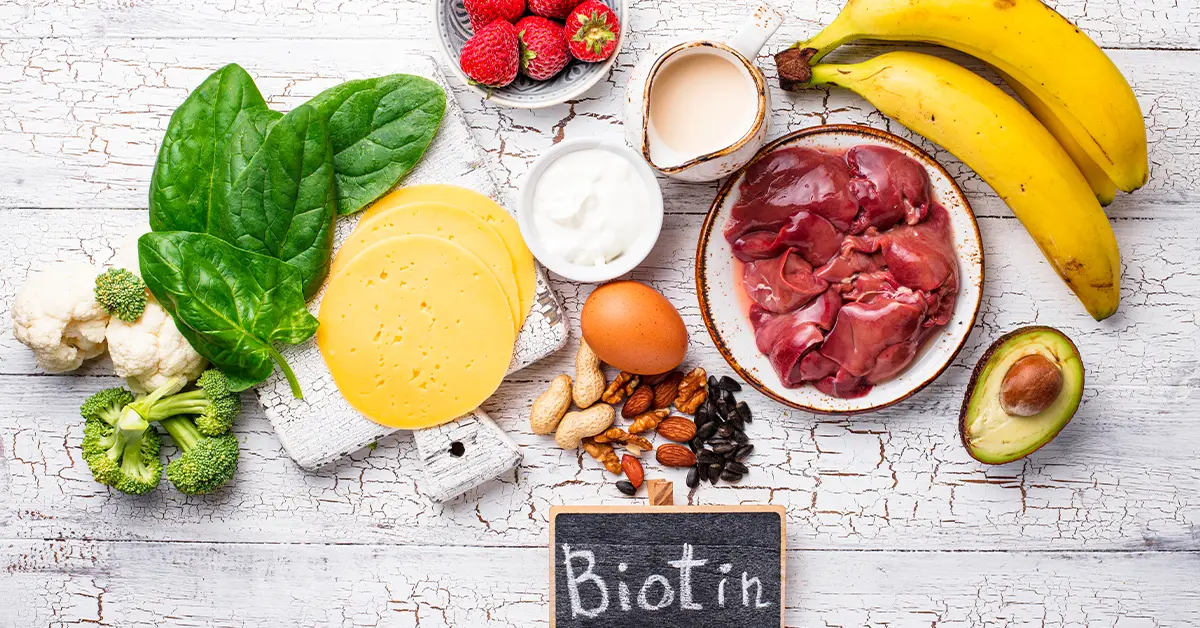
.Apart from fat and protein molecule breakdown, biotin aids the growth of nerve cells and their healthy development. It is also essential for strong nails and hair. Sweet potato, seeds, salmon, and cooked egg intake must be increased to eliminate the deficiency.
Vitamin B9 (Folic Acid)
Also known as folate or folic acid, this vitamin is essential for creating red blood cells and enzymes. B9 prevents damage to neural tubes, breaks down DNA, and balances the levels of homocysteine that can lead to cardiovascular issues. Asparagus, avocados, spinach, and broccoli contain a good amount of this vitamin.
Vitamin B12 (Cyanocobalamin)
Vitamin B12 assists in the breakdown of genetic matter, carbohydrates, and fats. It also aids the development of healthy red blood cells and nerve cells. Egg, milk, yeast, and yogurt are some excellent sources.
Minerals
Some minerals are responsible for the proper development of body structure, while others are necessary for chemical reactions inside the body. Your body requires some minerals in more significant amounts as compared to others. Therefore, minerals have been classified into two further types:
Essential or Major Minerals
These are required in more significant amounts by the body to support healthy body structure and growth:
Calcium
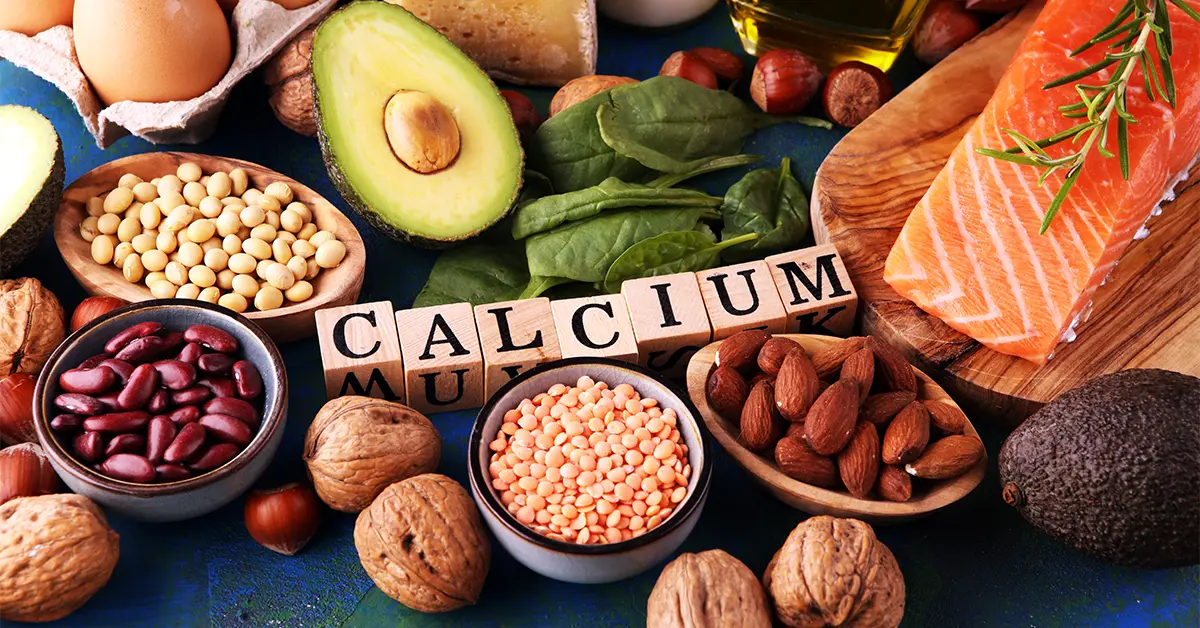
Calcium is an essential mineral that all strong bones and teeth are made of. Apart from this, this mineral is vital for healthy muscle contraction or relaxation, healthy nerve cell function, regulation of blood pressure, blood clotting, and excellent immunity. Consumption of milk, fish, consumed with bones, leafy greens, and legumes is necessary to cover any deficiency.
Magnesium
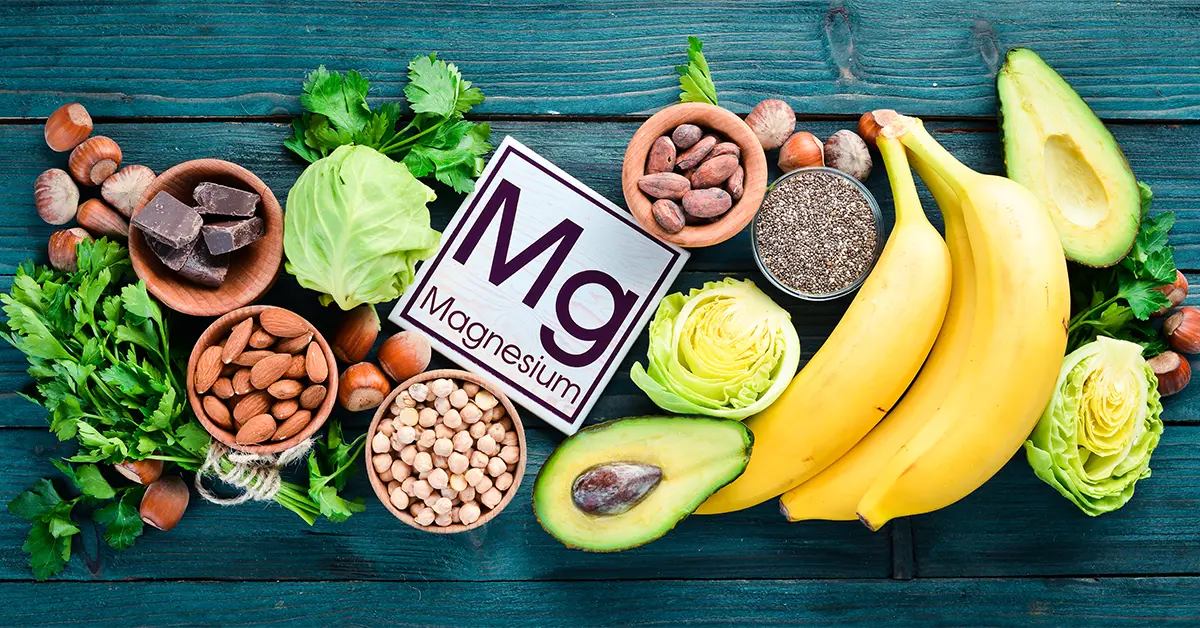
Magnesium plays an essential part in bone formation, muscle function, proper transmission of information through nerve cells, and excellent immunity. Nuts, chocolate, green vegetables, and seafood contain high levels of this mineral.
Iron
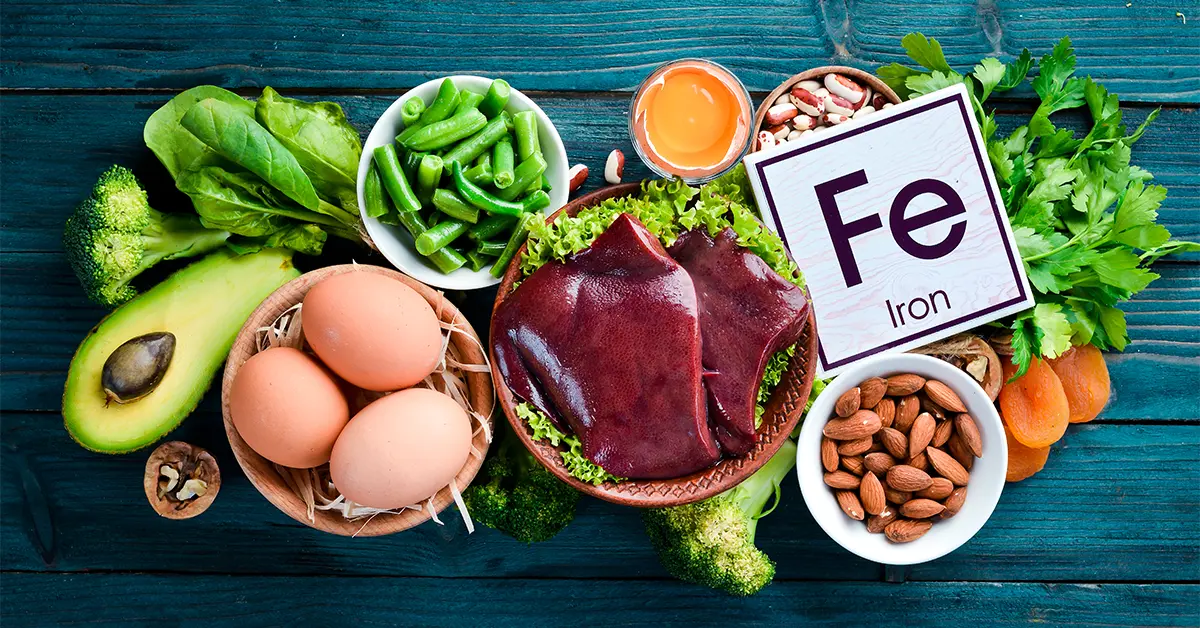
Some consider iron a trace mineral, while others consider it a major one. The amount of iron required by the body lies between the required amounts of trace and major minerals. Iron is responsible for the formation of hemoglobin. Hemoglobin is the molecule in red blood cells that allows the cell to carry oxygen in the bloodstream before it is dispatched for metabolic processes. Excellent iron sources include red meat, fish, egg yolks, and cereal.
Phosphorus
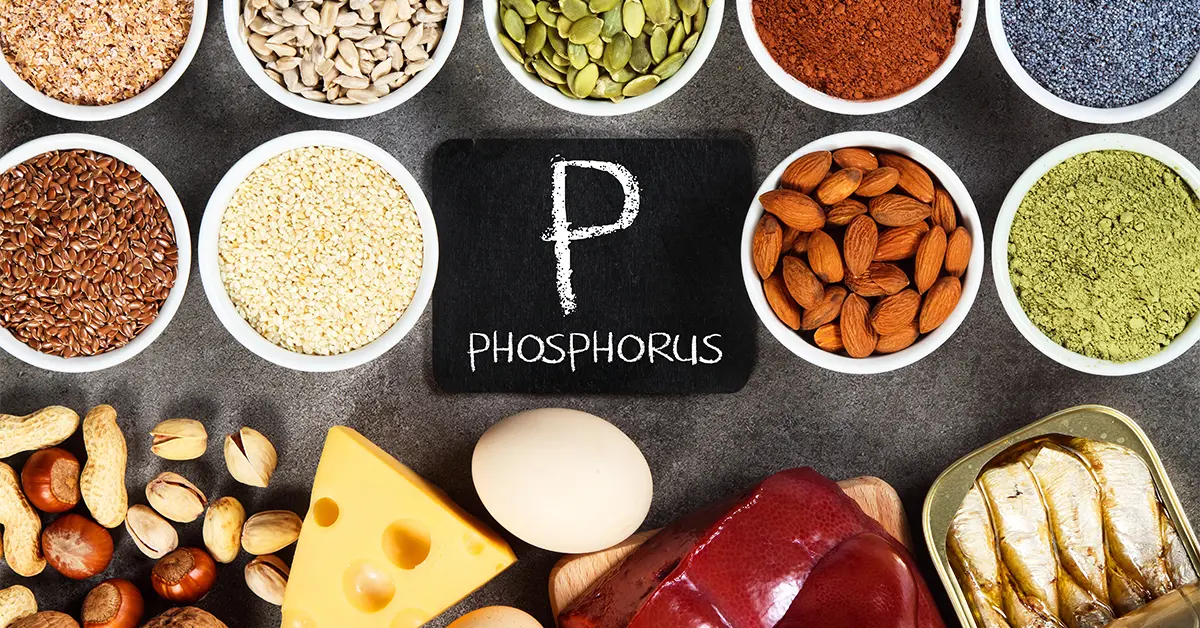
Phosphorus is an essential mineral for teeth and bone formation. Phosphorus is also required by all body cells that strike a balance between acidic and alkaline conditions. Milk or any milk product, fish, poultry, and meat are some great sources.
Sodium
Sodium helps balance the fluid levels in the body. It also supports healthy muscle function and nerve cell transmission. Salt, soy sauce, and unprocessed meat are the primary sources of sodium.
Potassium
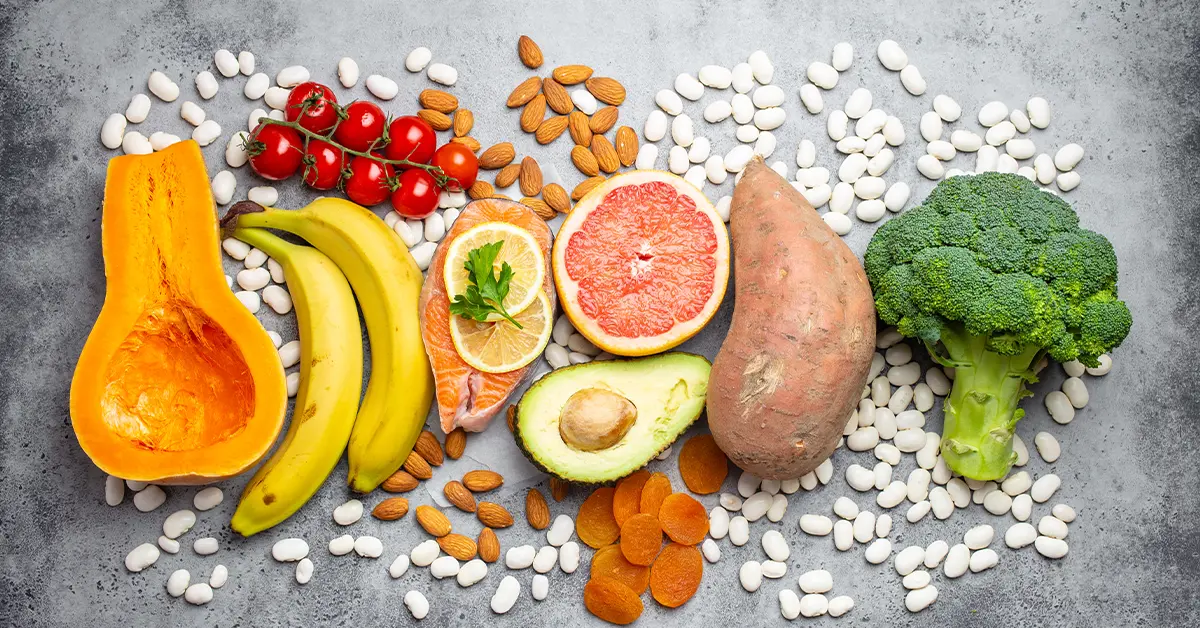
Potassium is also required for balancing fluid levels, healthy muscle contraction, and smooth nerve transmission. Foods that contain a high amount of potassium include milk, legumes, whole grains, fruits, and vegetables.
Chloride
Chloride helps create stomach acid and aids body fluid balance. Sources include soy sauce and table salt.
Sulfur
Sulfur is essential for the formation of a few proteins. Fish, eggs, milk, nuts, and legumes contain sulfur.
Trace Minerals
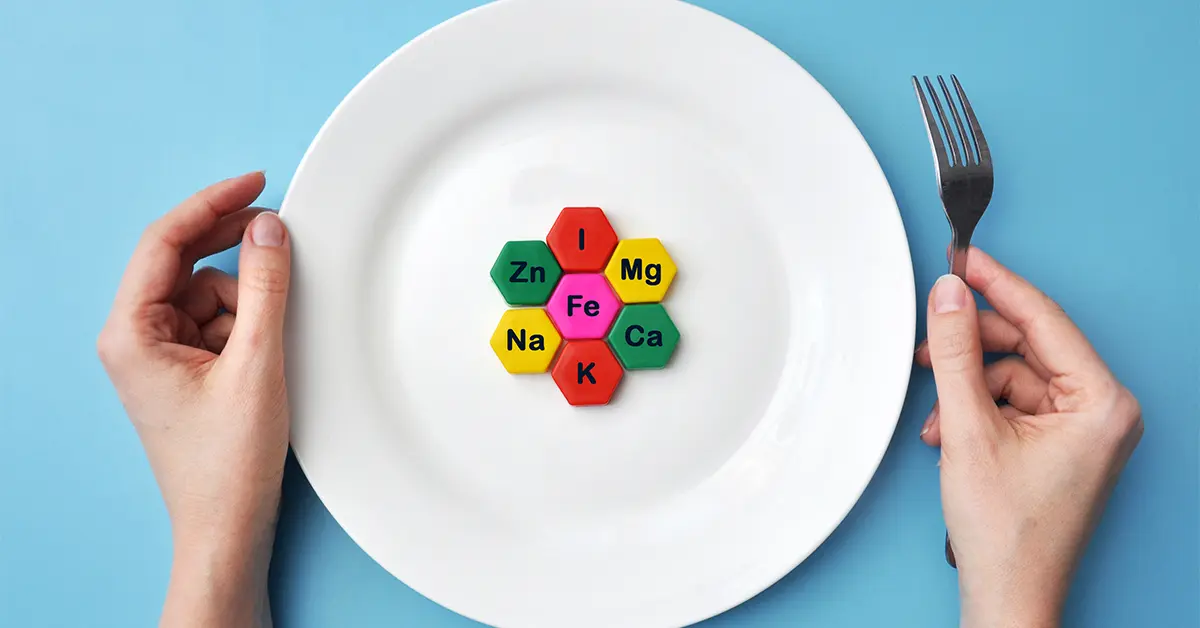
Trace minerals support chemical or electrical reactions throughout the body:
Chromium
It is essential for the regulation of blood sugar levels in the body. It aids insulin in the process. Nuts, cheese, liver, and whole grains are good sources.
Copper
Copper is essential for the metabolism of iron. It is also an essential part of many enzyme molecules. Water, nuts, legumes, and seeds are excellent dietary sources for this mineral.
Selenium
This mineral is an antioxidant found in grains, seafood, and meat.
Zinc
Zinc aids enzyme molecules and genetic matter syntheses. It helps you taste, heals wounds, aids baby development, boosts immunity, and aids sperm growth and sexual functions. Whole grains, vegetables, poultry, and fish need to be consumed to eliminate the deficiency.
Fluoride
Fluoride supports healthy tooth enamel and bones. You can obtain fluoride from drinking water and fish.
Iodine
Iodine is essential for healthy thyroid function. This, in turn, supports growth, development, hormone production, and metabolism. Iodized salt, dairy products, and bread are good sources of this mineral.
Molybdenum
It is responsible for enzyme molecule production. You can obtain this mineral by consuming legumes, green vegetables, milk, and bread.
Frequently Asked Questions
Summary On Vitamins
I hope you found this article informational + helpful. It is essential to maintain a proper diet to increase the uptake of vitamins and minerals essential for a healthy body and boost immunity.
Always consult a doctor before taking supplements or multivitamins to ensure that toxicity won’t become an issue. Once prescribed, ensure you take the correct dosage for the suitable duration to eliminate the deficiency of vitamins and possible health issues such as the risk of cancer.

